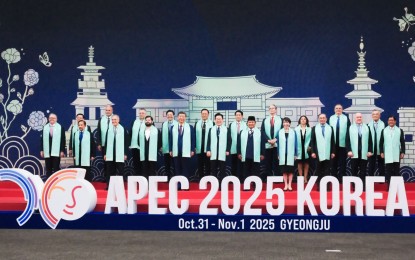
GYEONGJU, South Korea – President Ferdinand R. Marcos Jr. joined Asia-Pacific leaders in concluding the 2025 APEC Economic Leaders’ Meeting on Saturday, as member economies adopted the Gyeongju Declaration, a landmark commitment to harness artificial intelligence (AI), digital innovation, and inclusive growth across the region.
The declaration, issued after two days of talks chaired by South Korean President Lee Jae Myung, reaffirmed APEC leaders’ pledge to strengthen cooperation and ensure economic growth “that benefits all,” recognizing that the rapid rise of AI and demographic shifts are reshaping labor markets and development strategies in the Asia-Pacific.
“APEC economies stand at a pivotal juncture,” the document read.
The region’s leaders vowed to be guided by three priorities – building the world’s most dynamic and interconnected regional economy; preparing the region for digital and AI transformation; and addressing challenges together and ensuring the benefits of growth are shared by all.
The leaders also endorsed the APEC AI Initiative, aimed at advancing AI transformation and building capacities across sectors, and the APEC Collaborative Framework for Demographic Changes to help member economies adapt to aging populations and shifting workforces.
APEC declaration can only be adopted by consensus, with support from every single member economy.
Lee also formally handed over the APEC chairsmanhip to Chinese President Xi Jinping. China will host the 2026 APEC summit.
This year’s Gyeongju meeting, themed “Building a Sustainable Tomorrow: Connect, Innovate, Prosper,” marked the first time APEC leaders reached a consensus as a collective response to digital and demographic challenges.
Future hosts were also confirmed – Vietnam (2027), Mexico (2028), Singapore (2030), Japan (2031), Chile (2032), Papua New Guinea (2033), and Peru (2034). The 2029 host is yet to be confirmed. (PNA)